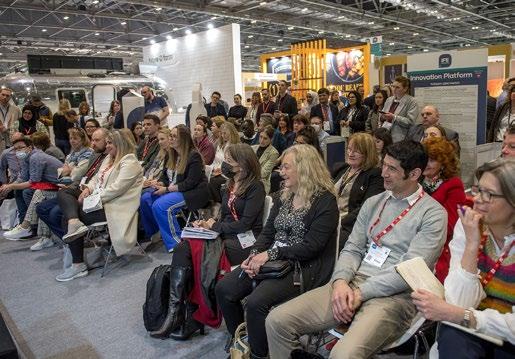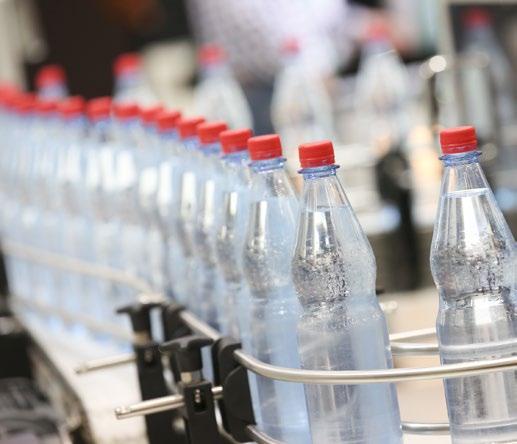
1 minute read
Retail Round-up Fresh-fish packaging – is keeping Seas blue!
Tesco announces a new initiative to help keep our seas blue. Over 80% of plastic in the ocean originates on land! The move, in partnership with Keep Sea Blue, will see around 500 tonnes of discarded plastic prevented from entering the oceans.
Plastic waste such as drinks bottles which is at risk of getting into the sea, is now being collected and recycled and used again in Tesco’s fresh fish packaging. Next week sees many of the supermarket’s fresh Salmon, Haddock, Cod and Sea Bass lines sold for the first time in trays that contain at least 30% Recycled Coastal Plastic collected from beaches, coastlines, and coastal communities around the Mediterranean Sea. The move into the new packaging is expected to remove around 500 metric tonnes of plastic from the environment each year and reduce the amount of ‘virgin plastic’ required in the packaging.
Advertisement
Tesco will use discarded plastic collected from coastal areas in the Mediterranean for its fresh fish packaging. The move, in partnership with Keep Sea Blue, will see hundreds of tons of discarded plastic prevented from entering the oceans
Plastic waste such as drinks bottles which are at risk of getting into the sea, is now being collected and recycled and used again in Tesco’s fresh fish packaging.
Full Transparency
The plastic waste consisting of Polypropylene, PET, Polyethylene, and other types of plastic, is collected from atrisk coastal areas such as beaches, and coastal communities within 10 km from the sea, thus prevented from entering the Mediterranean Sea by wind, rain or floods. Collection and processing is undertaken with full transparency and traceability and certified by the non-profit organisation Keep Sea Blue which works with and connects organisations across the supply chain from collection to reuse in new packaging.
The plastic is recovered initially by a network of collectors across the Mediterranean, including volunteer groups involved in beach clean-ups, local authorities, non-profits, and the private sector. The PET share of the waste is then carefully sorted, grinded, washed and recycled and goes back into foodgrade packaging materials. Through its customised Blockchain Platform, powered by Oracle Blockchain technology, the organisation monitors and certifies the circularity of plastics ensuring full material traceability.
Sarah Bradbury, Tesco Quality Director, said: “Where we can, we are reducing the amount of new plastic we use in our business. Re-using coastal plastic in our fish packaging is one way we can do that and at the same time keep it out of the oceans.”

Lefteris Bastakis, Founder, Keep Sea Blue: “Mismanaged plastic waste can only be solved by many partners working together. We are glad that Tesco is making a meaningful and active contribution to this programme towards protecting the Mediterranean Sea from plastic pollution and building a more sustainable future.”









